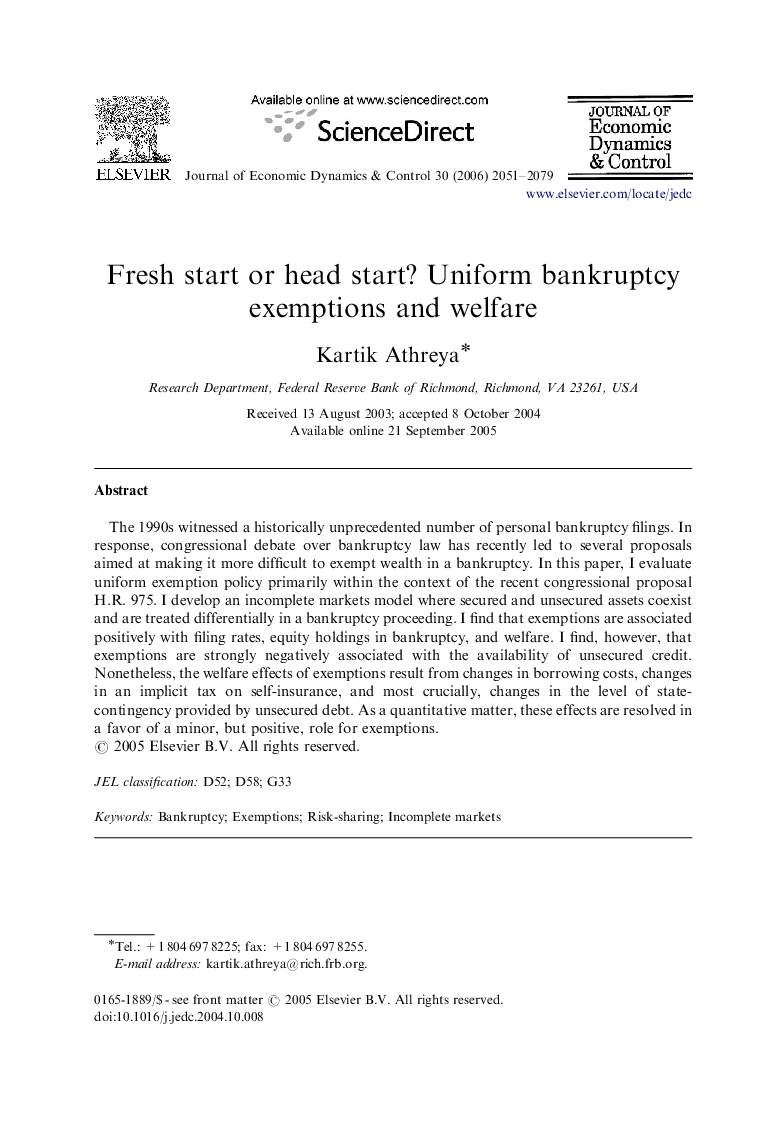| Article ID | Journal | Published Year | Pages | File Type |
|---|---|---|---|---|
| 5099720 | Journal of Economic Dynamics and Control | 2006 | 29 Pages |
Abstract
The 1990s witnessed a historically unprecedented number of personal bankruptcy filings. In response, congressional debate over bankruptcy law has recently led to several proposals aimed at making it more difficult to exempt wealth in a bankruptcy. In this paper, I evaluate uniform exemption policy primarily within the context of the recent congressional proposal H.R. 975. I develop an incomplete markets model where secured and unsecured assets coexist and are treated differentially in a bankruptcy proceeding. I find that exemptions are associated positively with filing rates, equity holdings in bankruptcy, and welfare. I find, however, that exemptions are strongly negatively associated with the availability of unsecured credit. Nonetheless, the welfare effects of exemptions result from changes in borrowing costs, changes in an implicit tax on self-insurance, and most crucially, changes in the level of state-contingency provided by unsecured debt. As a quantitative matter, these effects are resolved in a favor of a minor, but positive, role for exemptions.
Related Topics
Physical Sciences and Engineering
Mathematics
Control and Optimization
Authors
Kartik Athreya,
